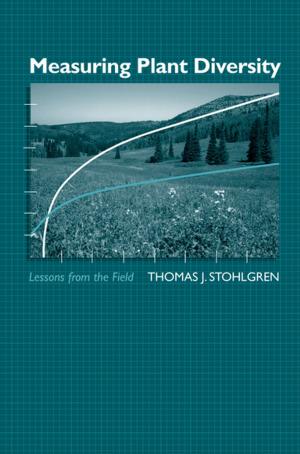Venomous Reptiles and Their Toxins
Evolution, Pathophysiology and Biodiscovery
Nonfiction, Science & Nature, Science, Biological Sciences, Zoology| Author: | ISBN: | 9780190297589 | |
| Publisher: | Oxford University Press | Publication: | May 13, 2015 |
| Imprint: | Oxford University Press | Language: | English |
| Author: | |
| ISBN: | 9780190297589 |
| Publisher: | Oxford University Press |
| Publication: | May 13, 2015 |
| Imprint: | Oxford University Press |
| Language: | English |
Venom research and technology has advanced greatly, rapidly transforming our knowledge of reptile venoms. Research advances, like the development of molecular systematics, provide the framework necessary to reconstruct the evolutionary history of glands and fangs. Such research developments have expanded our understanding of venom's evolution and its usefulness in therapeutic development. The results of this punctuated toxin molecular evolutionary expansion include protein neofunctionalization. While these changes may impact antivenom efficacy, this molecular diversity also facilitates their usefulness in the development of novel drug therapies. Venomous Reptiles And Their Toxins brings together the world's leading toxinologists in this comprehensive study of the entire scope of reptile venoms, from clinical effects to evolution to drug design and development. The book contains detailed applied chapters on clinical care of the envenomed patient, ineffective traditional or modern remedies, occupational considerations involved in the maintenance of institutional venomous reptile collections, veterinary care for venomous reptiles and research methods used in venom research. This book also devotes a chapter to each toxin class found in reptile venoms, detailing the full trajectory of research on the peptide or protein in question. These chapters discuss each toxin's respective role in the envenomation process through to how each has been explored for their biomedical potential. This book is a unique resource for anyone working with venomous reptiles.
Venom research and technology has advanced greatly, rapidly transforming our knowledge of reptile venoms. Research advances, like the development of molecular systematics, provide the framework necessary to reconstruct the evolutionary history of glands and fangs. Such research developments have expanded our understanding of venom's evolution and its usefulness in therapeutic development. The results of this punctuated toxin molecular evolutionary expansion include protein neofunctionalization. While these changes may impact antivenom efficacy, this molecular diversity also facilitates their usefulness in the development of novel drug therapies. Venomous Reptiles And Their Toxins brings together the world's leading toxinologists in this comprehensive study of the entire scope of reptile venoms, from clinical effects to evolution to drug design and development. The book contains detailed applied chapters on clinical care of the envenomed patient, ineffective traditional or modern remedies, occupational considerations involved in the maintenance of institutional venomous reptile collections, veterinary care for venomous reptiles and research methods used in venom research. This book also devotes a chapter to each toxin class found in reptile venoms, detailing the full trajectory of research on the peptide or protein in question. These chapters discuss each toxin's respective role in the envenomation process through to how each has been explored for their biomedical potential. This book is a unique resource for anyone working with venomous reptiles.















